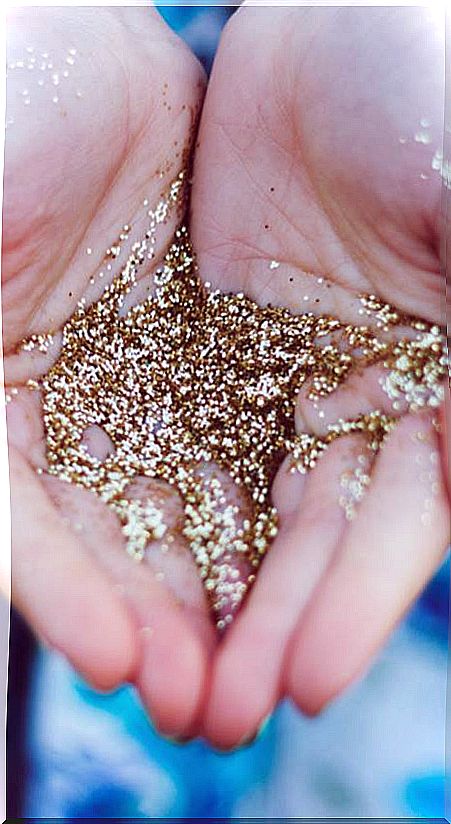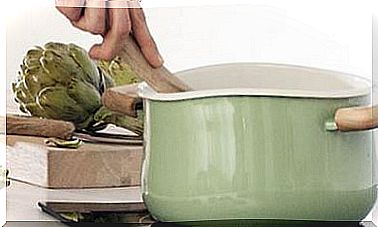The Benefits Of Gratitude
Gratitude is not just an emotion, but also an attitude that we can develop and that will make us happier.

Androcles and the lion
Aesop tells in one of his fables the story of Androcles, a poor Roman slave. Taken by his master to live in North Africa, he decided to escape to the coast taking advantage of a moonless night to, from there, try to return to Rome. However, as daylight came, he realized that instead of having fled towards the coast, he had entered a desolate desert. Exhausted, hungry and thirsty, he spotted a cave in the distance where he went to rest.
Suddenly, a terrible roar woke him up and he saw a huge lion at the entrance of the cave. Androcles knew there was no way out because the beast blocked his way. But the lion remained motionless: it groaned and licked one of its claws, which spilled blood. Seeing him suffer, Androcles forgot his fear and approached the beast.
Then he realized that he had a large thorn in it, and he pulled it out with one swift movement. The grateful lion left the cave and, in a few minutes, returned with a dead rabbit which he laid at Androcles’ feet. When the slave had satisfied his hunger, the lion led him to a spring of fresh water. For three years, according to Aesop, man and beast lived together.
One day Androcles felt like talking to his fellow men and left the cave. Captured shortly after by soldiers, he was sent to Rome to be torn to pieces by wild beasts in front of a crowd and the emperor of Rome himself.
As the hungry lion emerged from the cage, Androcles trembled and the spear they had provided fell from his hands. But the lion, instead of attacking him, waved his tail amiably and licked his hands. Androcles realized then that it was the same one with whom he had lived in the cave; He stroked his back, bent his head over it, and wept.
The people were shocked and amazed at such a prodigious scene, and the emperor, surprised by the tale of immense gratitude, granted Androcles the dignity of a free man.
Gratitude and happiness
In Lao Tzu’s words , gratitude is the memory of the heart. However, now lost count of the times that throughout life we will have given thanks or received them, these words seem to have emptied of meaning from so much use. And this despite the fact that such feelings of gratitude do not fully reflect the great and numerous reasons that, in our lives, appeal to it.
The attitude of gratitude is a positive emotion that has inspired numerous theoretical and philosophical approaches throughout history. However, despite the fact that Cicero already described it as one of the greatest virtues, it has traditionally been the most neglected of all of them by empirical science investigations, something that seems to have been slightly remedied in recent years.
Gratitude, together with gratitude as its expression, is among the most identified variables in all the research and empirical studies that have been carried out on well-being and happiness.
An experiment in gratitude
For me, the studies of Robert Emmons and Michael McCulough stand out, collected in their book The Psychology of Gratitude .
In their seminars they divided the participants into four subgroups at random.
- The members of the first group were asked before going to sleep to write down five things that happened throughout the day for which they were grateful.
- To those of the second, each night they write down five negative things from among everything that had happened to them.
- The third group had to write down five things that they considered to have done better than the others that day.
- And finally, the members of the fourth group, or control group, had to write down five things, whatever, that had happened to them during the day.
The variables measured were the degree of satisfaction with life expressed by the participants during the study and how happy they said they were, their level of optimism, the effectiveness in reaching their goals, their physical health, and how generous and benevolent they were.
The group that showed the worst results in all the measures was the one that pointed out five problems each night in contrast to the best results in satisfaction, optimism, success in reaching their own goals, healthy physical condition and a high degree of benevolence and generosity exhibited by those who Each night they wrote down five reasons why they were grateful.
Here are the spectacular effects of an action that can hardly take us two or three minutes a day.
Gratitude in tragic moments
Irvin Yalom, writer and eminent Professor of Psychiatry at Stanford University (USA), worked on some of his most important research with terminally ill patients, who were predicted between three and six months of life. Most of the subjects that were part of the sample expressed a common maxim: for the first time in their life trajectory they felt they were truly alive. Curious statement, considering the tragic moment they were going through.
They added that, for the first time, they felt appreciation, they realized that they were breathing, they enjoyed the walks and they valued the presence of friends and relatives. They felt they were alive!
Thus, the question is: do we need something extraordinary – usually dramatic – to happen in our lives to be able to appreciate the gifts responsible for our happiness or to estimate the bonanzas that accompany us in our daily lives? The obviousness of the answer is obvious. However, it requires a condition that is not so obvious: that we need to cultivate the habit and assiduously exercise the attitude of gratitude.
Cultivate gratitude as a family
I often propose to my patients such a healthy practice with their children or with their partners. And I have been able to verify the positive effects that this habit leads to – now we even have the scientific evidence that explains these impacts.
Asking our child what was the most fun of the day or expressing to our partner what we appreciate about them is an infallible exercise that notably increases our perception of well-being and significantly improves our relationships.
I remember the case of Ana, who some time ago came to my office to clarify the doubts that tormented her about her marriage. She said she had married very young and unconscious, and that the passing of the years gave her a glimpse that she had very little in common with her husband, from whom she believed she had fallen out of love. In addition to this, he had noticed a co-worker with whom he did seem to have many things in common.
In that first interview, I suggested that she list the things she appreciated about her husband and the pleasant experiences she had shared with him. Exceeding my expectations, she remained deep in thought, and I suggested that she continue to reflect on the matter. After that first meeting, she did not return to my office, but several years later she called me to talk about some issues that affected one of her children.
Ana came to my office accompanied by her husband and, to satisfy my curiosity, she explained to me that this exercise of gratitude had been decisive: it had helped her to appreciate in their real measure aspects of her life that constituted her most precious possessions and that, without However, for years he had taken it for granted.
Appreciate the good in our life
And it is that, in the words of Tal Ben Sahar, one of the greatest exponents of positive psychology, when we value the good, the good is revalued.
We treasure endless gifts of inestimable value within and around us that we are not always able to appreciate.
Appreciation, in addition to the sense of considering, appreciating and thanking, has a second meaning: increasing value.
This meaning is not only applicable to material goods but also to intangible, spiritual ones. When we appreciate the good in our life, the good increases in value. And when we ignore or take for granted the vital blessings that surround us, the good is depreciated and devalued. Unfortunately, this happens frequently to us, deteriorating the quality of our life, our relationships and our work.
Gratitude appeals to abundance
A proverb from Persia, my country, says: “I cursed the fact of not having shoes until I met a man who had no feet.”
Simple things like not feeling pain, breathing without difficulty, being mobile; have sunlight and water; count on the love of yours; find parking easily; witnessing how a plant blooms on your balcony or checking that your children are getting along much better lately, should not, in any case, be taken for granted.
In doing so, we would focus on what we lack, on desires, expectations and what we do not have, incurring the fatal negligence of leaving aside the unquestionable abundance in which we live.
Let us appreciate and become aware of all the simple reasons that life gives us every day to make us feel lucky.
Gratitude, therefore, far from being just an emotion, is an attitude that we adopt towards life and that makes us have a better self-esteem and a greater sense of personal worth; It increases our ethical awareness, improves our ties with others, helps us cope with stress and adversity, inhibits negative comparisons with others, encourages us to adapt to new circumstances and helps us combat negative situations.
How to cultivate a grateful attitude
1. Become aware of the positive in your life
Pay more attention to your surroundings so that you may be able to consciously identify and appreciate all the details for which you can express your gratitude. It is about putting into practice what they told us as children to cross the street: “Stop, look and continue”. Well, stop for a moment, consciously appreciate the current moment, what you are doing, thinking, feeling, and continue with your daily life.
2. Keep a gratitude journal
Write down the reasons why you are grateful each day. This practice will help you focus on the positive things and will increase your inner strength, which will help you achieve the goals you set for yourself.
3. Write a thank you letter
Write to a person with whom you feel grateful for something. Writing has a therapeutic effect because it helps us to shape and structure ideas, and translate them into concrete words. There is no need to deliver the letter or send it, although it is true that getting it to the person involved increases the positive effects and improves relationships with them.
4. Try to get others to follow you
Appeal to the reasons for gratitude of the people around you, asking your closest ones (partner, children, parents, closest friends) about the reasons why they feel grateful.
5. Be clear and sincere with your words
Openly express to people your appreciation for what they do or have done for you: their details, their care, their kindness. Explain to them the effect it has or has had on your life. This requires a small dose of courage because, often, the lack of habit makes us feel ashamed or blush when expressing positive things, even to those closest to us. But, with this exercise, you will soon see your emotional intelligence enhanced. It is not a “thank you” when the change is returned to us at the store, but a much deeper and more conscious gratitude.









